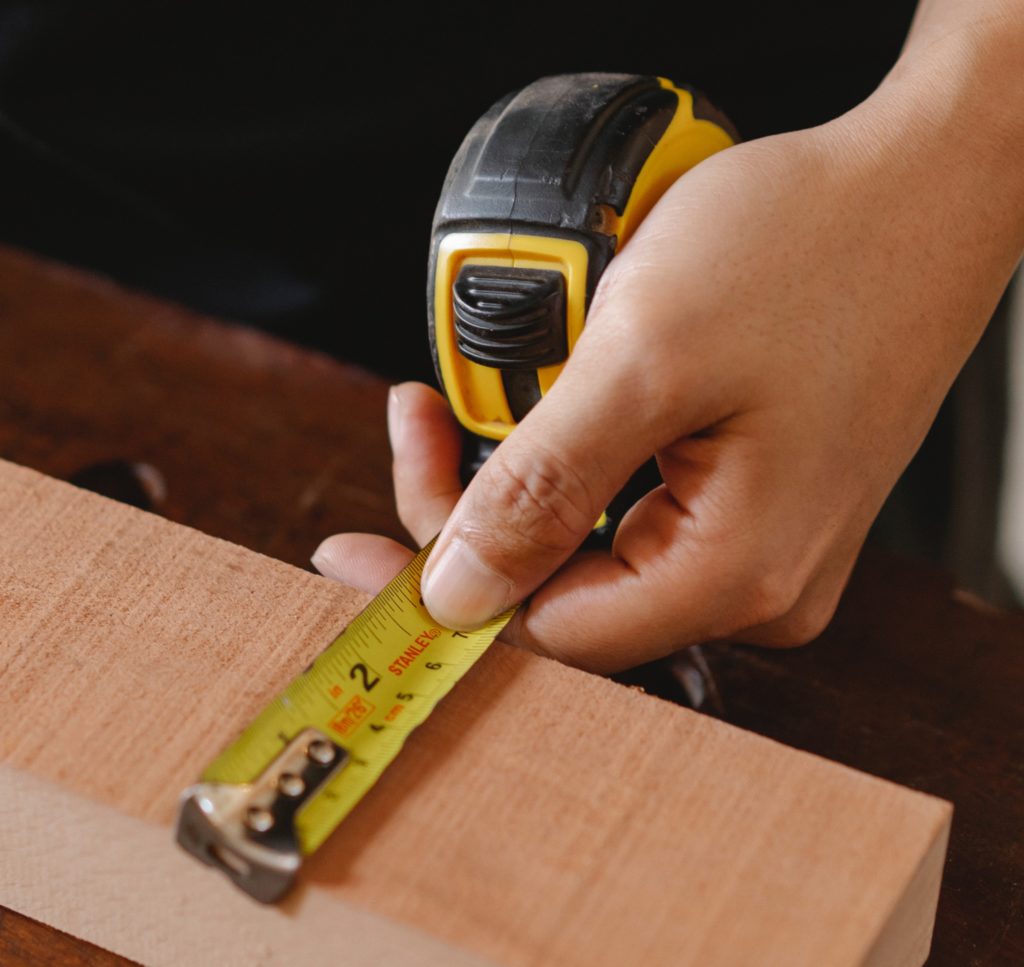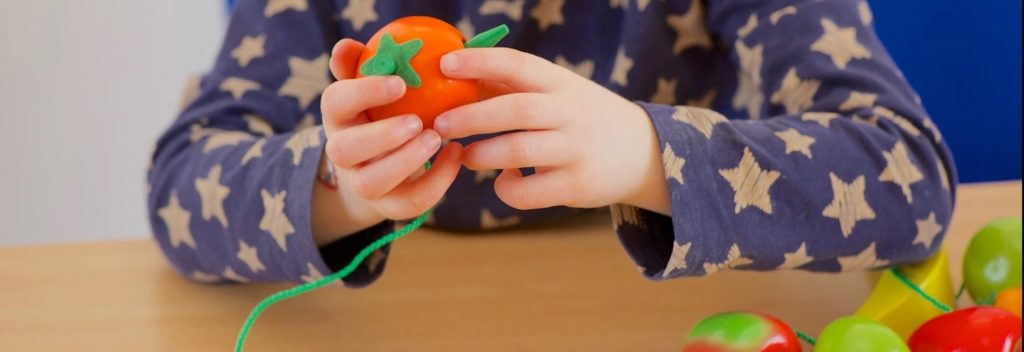Aids & equipment
14 mins read
This advice applies across the UK.
Caring for a disabled child can sometimes become easier with the use of certain aids and equipment. Getting the right equipment early will help your child’s development and confidence. And having the right equipment is essential for a child to become more independent as they grow up.
In this article
What are aids and equipment?
Aids and equipment are tools and devices that can make certain activities easier for disabled people.
Aids and equipment for your child could include:
- Aids like hoists to help with lifting and transferring them.
- Special beds and bed equipment.
- Tools to help with eating and drinking, such as adapted implements.
- Mobility aids or a wheelchair.
- Equipment to help with washing and bathing.
- Specialist clothing.
- Recreational equipment such as a TV, radio or computer.
- Hearing aids and glasses.
Getting aids and equipment
Who provides equipment for disabled children?
In general, social services are responsible for providing equipment to meet your child’s daily living and non-medical personal care needs.
Your health authority is responsible for providing equipment to meet nursing or medical needs, such as wheelchairs. The NHS can supply equipment on a free loan basis, and GPs or consultants can prescribe certain items.
In addition, a school or local education authority may arrange equipment to help a child access the curriculum. Our special helpline education specialists can provide further information about your child’s rights to support at school.
How to get aids and equipment
Contact a healthcare or personal care professional, such as a social worker, GP, district nurse, physiotherapist or school nurse, to find out what aids and equipment you might be able to get.
Your local authority (in England, Scotland and Wales) or health and social care trust (in Northern Ireland) will carry out a needs assessment. They can provide equipment if your child needs it. They should work together to support your child.
What happens at the assessment?
An occupational therapist (OT) or social worker will usually visit you in your home to discuss the situation and carry out the assessment. An OT is a professional who can advise on equipment for daily living and managing more easily within the home.
For example, you might not be able to get your child in and out of the bath safely. Or getting them in and out of bed is giving you a back injury. Tell them about any health and safety concerns for you and your child.
When the OT or social worker visit you, make sure you tell them about:
- Your needs as a carer.
- The needs of other family members.
If your child needs equipment to help with medical or health needs, a joint assessment should be carried out. The social worker or the OT may contact the community nursing service or your GP.
Once the assessment determines that your child needs help to manage more easily at home, the social worker or OT must consider how to meet these needs. They may give you practical advice about doing things differently, provide aids and equipment, or give you advice about alterations to the house.
Paying for aids and equipment
Items that must be provided free
In the UK, the health service often provides free-of-charge medical aids and equipment needed for children’s health.
In England, the local authority can’t change for certain aids and equipment it provides. These include equipment for daily living, such as a shower chair, or minor adaptations, costing £1,000 or less.
In Northern Ireland, your local trust decides whether they will fund the equipment or minor adaptation, or whether you’ll have to pay for it yourself.
Local councils in Scotland will normally provide essential equipment or adaptations costing under £1,500 free of charge.
In Wales, you may have to pay towards disability equipment and minor adaptations. The amount you pay must be reasonable and based on your financial circumstances.
Help to pay for aids and equipment
Families in the UK can use direct payments to buy equipment. Find out how to ask for them and how they work in practice.
There are also charities and benevolent funds who give grants for aids and equipment you can apply to.
Paying VAT on aids and equipment
You don’t have to pay any VAT when you buy certain aids and equipment for your disabled child’s personal use. You don’t pay VAT on:
- Adjustable beds, chair lifts, hoists and sanitary devices.
- Auditory training aids, like hearing aids and equipment.
- Low-vision aids.
- Certain medical and surgical appliances.
- Emergency alarm call systems.
- Motor vehicles and boats adapted to meet your disabled child’s condition. Not every vehicle or adaptation will qualify, so seek further advice from our freephone helpline.
- Any other equipment or appliance designed solely for your disabled child. It is not enough to show that a piece of equipment is one that disabled people often use. It must be specifically designed for your child’s use. For example, you would pay VAT on an orthopaedic bed, because they are designed to be used by disabled and non-disabled people. Ultimately, it is the designer or manufacturer of a product who decides whether you need to pay VAT on it.
VAT on installation, repair and maintenance
You don’t have to pay VAT on any charges made for the installation, repair and maintenance of these aids and adaptations. You don’t have to pay VAT for any spare parts or accessories they need.
VAT on building work
You don’t pay VAT on certain building work. This includes work on:
- Ramps.
- Widening doorways and passages.
- Extending or adapting bathrooms, shower rooms, wash rooms and toilets.
- Installing and repairing a lift.
- Any general purpose goods adapted for a disabled child’s use. The extra you pay for the adaptation should be VAT free, although not the actual goods themselves.
However, if you employ an architect, surveyor or consultant, you will have to pay VAT on their services. This is the case even if they are providing services in connection with building work that does qualify.
VAT on equipment from abroad
If you import equipment from abroad, there are specific rules allowing VAT exemptions in certain circumstances.
How to make sure you do not pay VAT
You need to put down in writing, to the supplier, that you are entitled to buy the goods and services without paying VAT.
A parent can do this on behalf of their disabled child. There is no official form for this. Her Majesty’s Revenue and Customs (HMRC) has suggested wording you can use in VAT Notice 701/7 – VAT reliefs for people with disabilities. This web page also has information on what items you do or don’t have to pay VAT on.
If a supplier has wrongly charged you VAT
It is the supplier’s responsibility to check that you don’t have to pay VAT. If they have wrongly charged VAT, your supplier may be able to adjust their VAT records and refund you the money. You can’t get a refund of VAT from HMRC.
For more advice about paying VAT, call our freephone helpline or contact: HMRC 0300 200 3700.
Consumer rights
When you buy goods and services, you have a right to expect certain standards. This applies when you buy in person or by mail order.
If something goes wrong or you’re not satisfied with the service or goods, try contacting the supplier first. If you’re unhappy with the outcome, seek further specialist advice. It is important to do this as soon as possible as your rights may depend on when the transaction took place. Otherwise, you could find that you’re out of time.
If you need to make a complaint
Your local citizens advice service or local trading standards service can give you advice and help you make a complaint.
Mobility aids and wheelchairs
If you’re concerned about your child’s mobility, talk to your GP. They can make a referral to the physiotherapist at your local hospital, who will assess your child’s needs.
Your local hospital or community health service can lend you basic walking aids if the physiotherapist recommends this.
Your local NHS wheelchair service will assess your child for a wheelchair (powered or manual) and provide them with one. The wheelchair service can also supply children’s buggies.
Your GP, local health centre, physiotherapist or occupational therapist can tell you where your local wheelchair service is.
At what age can my child get a wheelchair?
Wheelchairs are supplied to someone who needs a chair permanently.
Children in the UK have to be 30 months old (two and a half) before the NHS can assess them for a wheelchair. In theory, the NHS wheelchair service can supply any wheelchair. But this can depend on local criteria, resources, and individual circumstances.
In Scotland, there are national criteria for the provision of powered wheelchairs. But generally there is no NHS funding for powered wheelchairs for children under five.
See below for charities that help with powered wheelchairs, including for children under five.
Choosing a wheelchair
The wheelchair service should help you to choose a wheelchair that meets your child’s needs. This includes extras such as cushions, armrests or trays.
The service will also be responsible for its maintenance, provided any problems are not caused by misuse or neglect. You should receive the number for a local approved repairer, who will be responsible for repairs.
For help choosing a wheelchair, visit the NHS website, or call NHS Direct 111.
If you want more than a standard wheelchair
In many cases, eligibility criteria and the limited budgets of local NHS wheelchair services mean that many children won’t get a wheelchair or buggy. Usually, you have to buy outdoor electric wheelchairs, scooters or specialist sports chairs.
In England, if you’re unhappy with the choice of wheelchairs available and need something other than a standard chair, consider asking for a personal wheelchair budget assessment. If your child meets the eligibility criteria, you should be provided with information about the amount of money available in their personal wheelchair budget and the options available to you locally to use it. See more information on personal budgets.
Additional sources of help with wheelchairs
Some charities and grant-making organisations will help fund a wheelchair and mobility equipment:
- Whizz-Kidz charity provides a wide variety of mobility equipment for children up to 18 that is not available from the NHS. Families may need to contribute to the cost. Also provide wheelchair skills training, activity programmes, training and employability programmes.
- Wizzybug is a powered indoor/outdoor wheelchair loan scheme, providing first experience of independent mobility for children aged 14 months to 5 years.
- Tiny Trax – power wheelchair for children from 18 months to 12 years old. Available via personal wheelchair budget/voucher scheme in England, or see their website for help with funding.
- Bugzi is an indoor, powered wheelchair for children up to about six years old, available free to loan. Families pay a returnable deposit.
- Caudwell Children provides funding for mobility equipment families can apply for. This includes multipurpose wheelchairs and therapy cycles, as well as specialised car seats and mobility buggies.
Many other charities will give grants to families in order to help with aids and equipment.
If you’re unhappy with the wheelchair service
Unfortunately, things can go wrong. If you feel unhappy with the service you receive, you can try to resolve this by raising a concern directly with them.
If the service doesn’t resolve your concern, you can make a complaint. Ask the wheelchair service for a copy of their complaints’ procedure, which will explain how to make a formal complaint.
You can also find details of how to make a complaint in any of the four nations of the UK.
Transport & leisure discounts
You might be eligible for help with parking, getting a car, paying road tax and rail and bus travel.
Continence aids
You can ask for advice on continence from health visitors, district nurses, learning disability nurses, community nurses, or social workers. See our advice on potty/toilet training and continence issues.
Communication aids
Our page on speech, learning and movement has information about communication aids and equipment.
Clothing and aids for daily living
Your life may be easier, and your child may achieve more independence and confidence, by having:
- Specialist clothing.
- Adapted implements for eating and drinking.
- Environmental controls to operating certain appliances such as light switches, TV, phone, or opening doors, for example.
Your child may be able to borrow a piece of equipment or particular application to try it out. They might get extra help if they have a statement of special educational needs (in Wales and Northern Ireland) or EHC plan (England) or coordinated support plan (Scotland). This could lead to the provision of specialist equipment to help with learning (see Education aids below or read more about extra help in education).
These organisations may help with clothing and aids for daily living:
- Fledglings is Contact’s not-for-profit shop, supplying life-changing products, clothings and equipment for disabled children to help with their everyday challenges.
- Independent Living lists suppliers for all kinds of specially designed products to help disabled children achieve greater levels of comfort, security and independence at home. Including toughened furniture, specially designed beds and seating.
Computers and information technology
There is a wide variety of websites, applications (known as apps), and products such as laptops and tablets available to families with disabled children. These can help in everyday life and leisure as well as help with your child’s development, communication and learning.
Equipment and packages can help with sound and vision and difficulties with operating a computer. Solutions may include voice recognition or eye-tracking systems, touch screens or replacing the mouse with a trackball.
This kind of equipment may be available from your local authority if your child is assessed as needing it, and you meet the criteria. Help may also be available from charitable trusts.
Our page on speech, learning and movement has information about communication aids and equipment.
Get specialist advice
Because of the volume of information and products available, it is important to get specialist advice. The following organisations can provide further information:
- Everyone Can – charity helping disabled people improve their quality of life through the power of technology.
- Sequal Trust – charity providing assistive technology and communication aids for people with speech and language issues.
- Ability Net – charity that helps individuals with any disability, of any age, to use all kinds of digital technology. They also have easy read versions of their factsheets on their website.
Education aids
Your local authority or your child’s school or college may be able to provide aids and equipment to help with your child’s learning.
The school may arrange for an occupational therapist (OT) to assess your child. They may provide aids for use in school and at home. Contact the head teacher or special educational needs coordinator (SENCO) for more information.
If your child has a statement of special educational needs (in Wales and Northern Ireland) or EHC plan (England) or coordinated support plan (Scotland), it should include details of specific equipment your child needs to help them at school. If you have concerns about your child’s needs, talk to the school. Read more about extra help in education.
Further and higher education
Additional help may be available for young disabled people in further and higher education. This can be in the form of specialist aids and equipment or allowances to pay for equipment or practical help. Young disabled people will need an assessment to decide what help they need.
England: Disabled Students Helpline provides advice to Disabled students, apprentices and trainees in England – 0330 995 0414.
Scotland: National Disabled Students’ Helpline and Information Service – Freephone Helpline : 0800 999 2568.
Northern Ireland: Disability Action offer support in work and training.
Wales: Careers Wales gives help on choosing subjects, courses, training and apprenticeships – freephone helpline
0800 028 4844.
Play, leisure and child development
Play has an important role in a child’s development. See our information on holidays, play and leisure to find ideas about accessible toys and aids and equipment to help play.
Related information

Home adaptations
An adaptation is a change made to your home to make it more accessible and safer for a disabled person.
Read more
Help with home improvements
Making home improvements can lead to savings on your fuel bills.
Read more
Grants, loans, savings & local authority schemes
Information about charity grants you might be able to apply for, local welfare schemes and budgeting loans/advances.
Read more
Toys, clothing & sensory products
Visit our partner shop for essential aids for disabled children and adults.